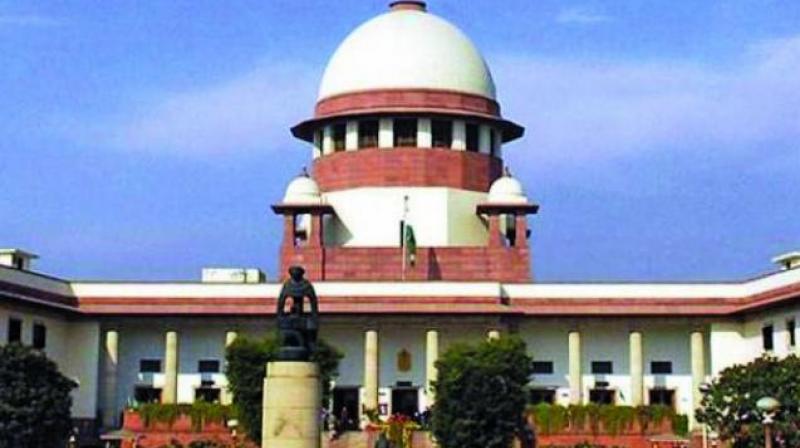Emergency treatment: Place life over payment

Law helps the injured to die'. This newspaper report about a good samaritan who took a bleeding scooterist knocked down by a speeding car, to a hospital, only to be turned away and re-directed to another hospital citing medico-legal formalities, by which time the patient died, had prompted a social activist to move the Supreme Court through a Public Interest Litigation. Three decades ago, the Supreme Court in Pt. Paramanand Katara Vs Union of India, had laid down the principle of 'medical attention first, legal formalities later. Consider these observations and directions of the Apex Court.
"There is also no doubt that the effort to save the person should be the top priority not only of the medical professional but even of the police or any other citizen who happens to be connected with the matter or who happens to notice such an incident or a situation."
"Article 21 of the Constitution casts the obligation on the State to preserve life. A doctor at the Government hospital positioned to meet this State obligation is, therefore, duty-bound to extend medical assistance for preserving life. Every doctor whether at a Government hospital or otherwise has the professional obligation to extend his services with due expertise for protecting life. No law or State action can intervene to avoid/delay the discharge of the paramount obligation cast upon members of the medical profession. The obligation being total, absolute and paramount, laws of procedure whether in statutes or otherwise which would interfere with the discharge of this obligation cannot be sustained and must, therefore, give way."
Section 33(m) of the Indian Medical Council Act provides for the laying down of "the standards of professional conduct and etiquette and code of ethics to be observed by medical practitioners" Under clause 10 of the Code of Medical Ethics framed by the Medical Council of India, doctors have "obligations to the sick." It expressly states that "though a physician is not bound to treat each and every one asking (sic) his services except in emergencies for the sake of humanity and the noble traditions of the profession, he should not only be ever ready to respond to the calls of the sick and the injured, but should be mindful of the high character of his mission and the responsibility he incurs in the discharge of his ministrations, he should never forget that the health and the lives of those entrusted to his care depend on his skill and attention. A physician should endeavour to add to the comfort of the sick by making his visits at the hour indicated to the patients."
Further, clause 13 of the Code of Medical Ethics, reads: "The patient must not be neglected. A physician is free to choose whom he will serve. He should, however, respond to any request for his assistance in an emergency or whenever temperate public opinion expects the service. Once having undertaken a case, the physician should not neglect the patient, nor should he withdraw from the case without giving notice to the patient, his relatives or his responsible friends sufficiently long in advance of his withdrawal to allow them to secure another medical attendant."
How have things changed on the ground? The protection of good samaritans who render emergency medical or non-medical assistance to victims at accident scenes in good faith, voluntarily and without the expectation of any reward, from legal liability, through the Motor Vehicles (Amendment) Bill, 2016, is under legislative consideration. Mercifully, there is more awareness today and less harassment of public spirited citizens.
But aside of legal formalities, the elephant in the room is the payment of medical bills. A doctor friend in Chennai Dr. Lakshmi Sundar tagged me in a facebook post about a young cyclist who had collapsed near the Besant Nagar Beach. The post stated that the government ambulance arrived and the first question the staff asked was whether the patient would be able to afford a CT Scan that was required! The query was irrelevant, illegal and insensitive as treatment at government hospitals is free.
Consider the possibility of the nearest hospital being a private establishment. What if the patient is unconscious and unable to answer questions? What if there are no friends or relatives present or members of the public who can or are willing to answer that question? What if the patient does not have medical insurance? If the answer is no, would the private hospital ambulance leave the patient on the road and drive away? If the patient is transported to the private hospital and post emergency treatment the patient is unable to foot the bill, what happens then? In such cases, it would not be fair to force duty conscious members of the public or ambulance staff or doctors or even the hospital to pay for the treatment of those they tried to save. This is where real Corporate Social Responsibility must kick in. In many cases, 'CSR' is confined to tokenism or is publicity-centric.
Let's be clear. Even private hospitals cannot refuse emergency treatment. They must, at the very least, administer first aid and shift the patient to a government hospital, if further treatment is required and there is no evidence of payment forthcoming. There must be clear communication about such obligations and duties that percolate right down to the ambulance staff and emergency wards. And a robust mechanism of reimbursement of emergency treatment at private hospitals by a Welfare State. Till that happens, as business targets are met, the buck will be passed and lives will be lost.
With all due respect, these are priorities the Medical Council should grapple with. Not play moral police and focus on hospital romance between doctors and nurses and patients or the nature of advertisements by the men in white.
(The writer is an advocate at the Madras high court, columnist & author)

